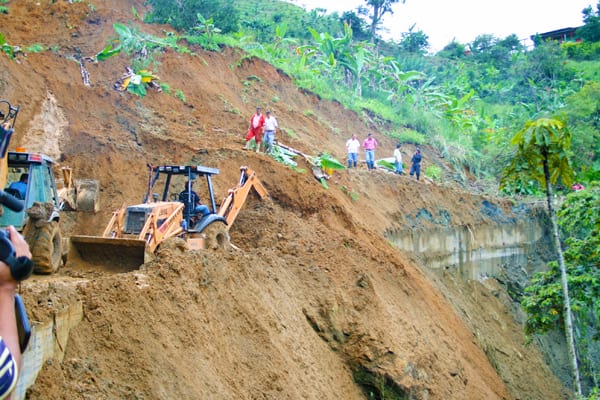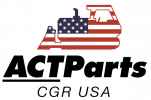
In the global economy for heavy equipment, Colombia has established itself as a land rich with opportunity. With the passage of the U.S.-Colombia Trade Promotion Agreement, over $200 million in tariffs required by manufacturers in the past have been eliminated. And the country’s economy is growing at a rate that requires heavy investment in infrastructure in order to sustain itself.
To be more specific, the country’s growth is expected to reach 4.3% by 2016 compared to 2.9% in Latin America as a whole. This kind of growth would not be possible without the construction sector which made a 21.3% increase between July and September of 2013; driven by a rise in agricultural production fueling the country’s export market.
However, while exports such as coffee and sugarcane may be the drivers of growth in the construction of roads and ports, this high a rate can only be explained by the country’s urgent need to play catch up in regards to infrastructure. In the Global Competitiveness Index published by the World Economic Forum for 2013-2014, Colombia ranks at 130 out of 148 countries in quality of roads and 110 in port infrastructure. Other reports have shown that the cost of shipping a container from Shanghai to the port of Buenaventura is cheaper than moving the same container inland from Buenaventura to Bogota.
In order to provide faster service to our customers in Colombia, ACTP’s Latin America Sales Manager, Jaime Pineiro, is using data.
“By looking at the item numbers and quantities being ordered, we are constantly re-arranging the inventory held in our Miami warehouse to better serve Colombia,” says Jaime. “Now we can ship the parts they need overnight for less extra cost than if they were leaving from Kansas City, Knoxville, or Visalia.”
A good example of what Jaime described are the industry standard CGR quality undercarriage parts we keep stocked in Miami. When applied, they give machines more protection and last longer under the harsh conditions of the Andes mountains. But they still face the same logistical challenges as all aftermarket Cat© parts after they reach Colombia.
According to Jaime, “Colombian fleet managers and mechanics have to consider the environment their machines are operating in so they can anticipate what replacement parts are needed and when to order. Extreme conditions are normal down there and the combination of heat, mud, water, etc. creates a lot of problems for undercarriage. And since these conditions are mostly found in remote areas it can cost operators several days of downtime if the part hasn’t been ordered before the problem presents itself.”
Despite its logistical challenges, however, Colombia is a great country in which to do business. The violence between separatist militia groups, drug cartels, and land owners has drastically declined over the past several years making it safe for tourists and business people alike. And the economy’s consistent growth gives hope that the infrastructure will begin making rapid improvements.
“It’s a beautiful country,” states Jaime. “Bogota is one of the best cities I have been to. The people are very welcoming and friendly. The food is wonderful…we really enjoy doing business there.”



